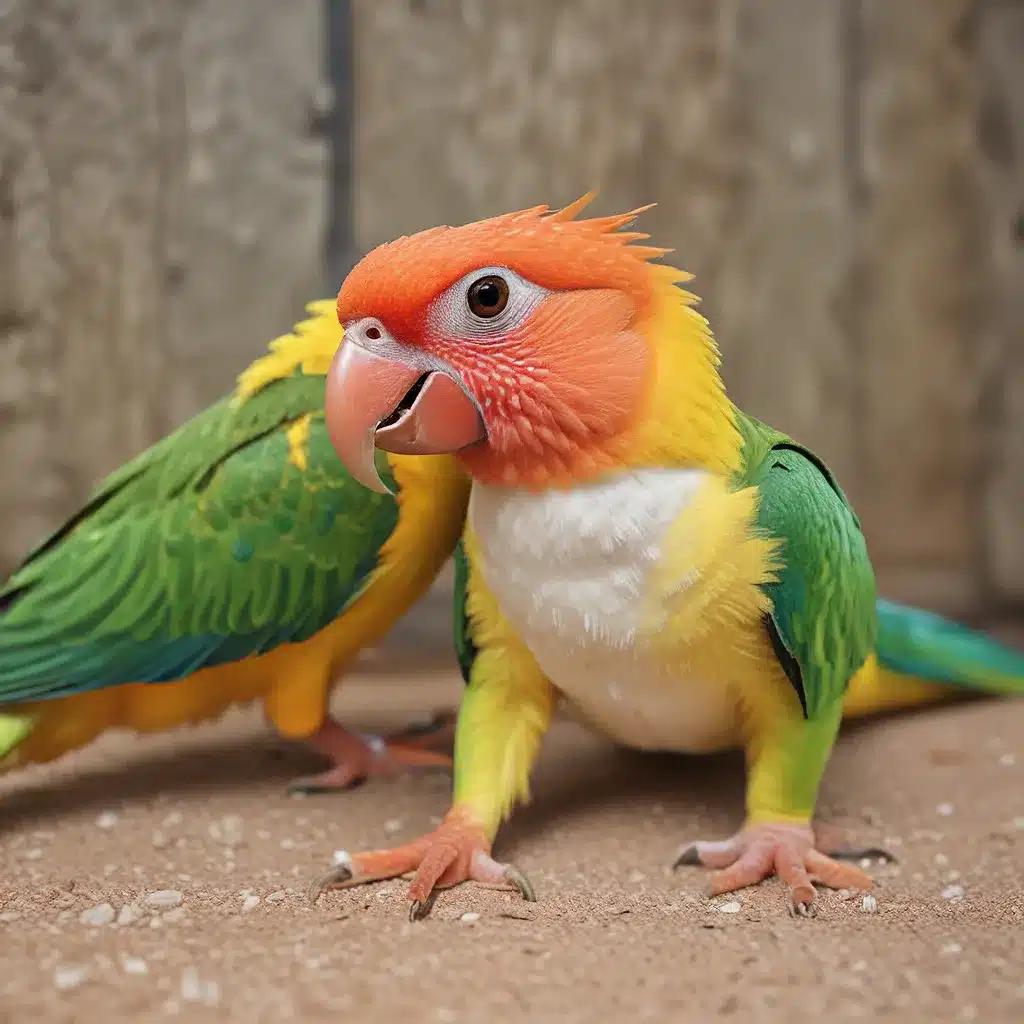
Unleashing the Power of Positive Reinforcement
Ah, the age-old quandary – what do we call ourselves as trainers? Are we the zealous “positive reinforcement only” crusaders, the dreaded “balanced” practitioners, or something in between? Well, let me tell you, I’ve been wrestling with this identity crisis for years. And you know what? I’ve come to the conclusion that labels are more trouble than they’re worth.
You see, I’m not interested in fitting neatly into any one box. My approach to training exotic pets is a unique blend of techniques, tailored to the individual needs of each furry (or scaly) friend. I’m not a slave to any single methodology – I’m a relationship-based trainer, a pragmatist, and above all, an empathetic communicator. It’s all about finding that perfect harmony between the pet, the owner, and the society we live in.
Navigating the Terrain of Exotic Pet Training
Now, let’s dive into the nitty-gritty of training our exotic companions. These remarkable creatures don’t exactly come with an instruction manual, do they? We’re talking about parrots, snakes, ferrets, and a whole menagerie of species that defy the conventional dog-and-cat paradigm.
Golden Exotic Pets has become my go-to resource for understanding the unique needs and behaviors of these fascinating pets. And let me tell you, positive reinforcement is the backbone of my training approach. I firmly believe that cultivating a cooperative relationship is the key to unlocking the full potential of our exotic friends.
The Balancing Act: Kindness and Effectiveness
But here’s the thing – being “positive” doesn’t mean being a pushover. I’m not here to coddle my pets or let them walk all over me. Nope, I’m all about striking that delicate balance between kindness and effectiveness. Because let’s be real, sometimes a firm “no” or a gentle redirection is exactly what the situation calls for.
It’s not about being a rigid disciplinarian or a soft-hearted softy – it’s about reading the situation, understanding the individual pet, and responding with the appropriate level of guidance. And you know what? That’s not always easy. It takes a keen eye, a flexible mindset, and a whole lot of patience.
Failure: The Elephant in the Room
One of the biggest challenges I’ve faced as a trainer is addressing the dreaded “F” word: failure. Now, I know what you’re thinking – “Failure? In positive reinforcement training? Blasphemy!” But hear me out.
The fact is, even with the most well-thought-out plans and the most positive of approaches, there are going to be times when our exotic pets don’t quite get it right. And you know what? That’s okay. It’s all part of the learning process.
The key is to approach these moments with the same compassion and pragmatism that we bring to the rest of our training. It’s not about resorting to harsh punishments or abandoning our principles. It’s about tweaking our approach, adjusting our expectations, and guiding our pets through the hiccups with patience and understanding.
Relationship: The Heart of Exotic Pet Training
At the end of the day, my training philosophy boils down to one simple yet profound concept: the relationship. It’s not just about teaching a specific behavior or trick; it’s about building a genuine bond of trust and mutual respect between the pet and the handler.
Denise Fenzi hit the nail on the head when she wrote, “I want to see a happy dog with a happy handler within a happy society.” And you know what? That sentiment applies just as much to exotic pets as it does to our canine companions.
It’s about understanding the unique needs and quirks of each individual pet, and tailoring our approach accordingly. It’s about creating an environment where our pets feel safe, respected, and empowered to make good choices. And it’s about fostering a sense of cooperation and teamwork, where the pet and the handler work together towards a common goal.
Embracing the Atypical: Adapting to Individual Needs
Of course, no two exotic pets are exactly alike, and that’s where the real challenge (and the real fun) comes in. Some of our scaly, feathered, or furry friends might be a bit more… let’s say, “unique” in their temperament and behaviors.
And you know what? That’s okay. In fact, it’s where I really get to flex my training muscles. Because when it comes to the “atypical” pets, it’s not about forcing them into a one-size-fits-all mold. It’s about getting creative, thinking outside the box, and tailoring our approach to their individual needs.
Take Brito, for example. This little parrot of mine has a tendency to get a bit… let’s say, “excitable” in public. So, you better believe I’m going to be reinforcing that recall like crazy, because I want to make sure he comes running to me no matter what’s going on around us. It’s not about making him “perfect” – it’s about setting him up for success and keeping him (and everyone around us) safe.
Embracing the Gray: Beyond Black and White
You see, the thing is, the world of exotic pet training isn’t black and white. It’s a messy, colorful, and sometimes downright confusing landscape. And that’s exactly why I’ve sworn off the rigid labels and embraced my role as a kind, effective, and empathetic communicator.
Because at the end of the day, what matters most is that we’re creating happy, healthy, and well-adjusted exotic pets who thrive in their relationships with their human counterparts. And that’s exactly what I’m here to do, one positive reinforcement session at a time.
So, if you’re looking for a trainer who’s going to treat your exotic pet like a unique individual, who’s going to navigate the challenges with creativity and compassion, and who’s going to cultivate a cooperative relationship built on trust and mutual respect, then you’ve come to the right place. Let’s embark on this journey together, and see what amazing things we can accomplish!

